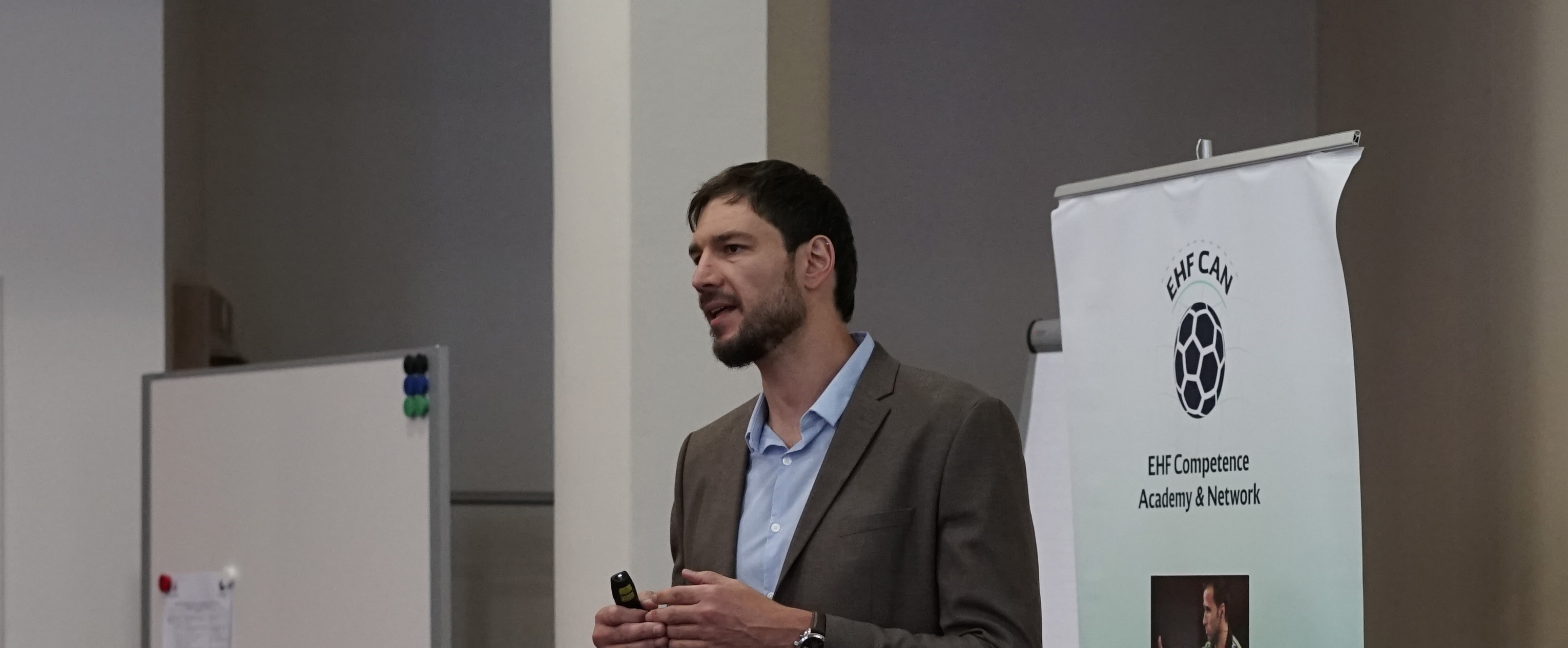Back in the days when he was a young boy, it was obvious that almost all kids were playing sports.
But times have changed, and Carlos Prieto is well aware of it.
“We have a problem in sport because the new generations are practicing less and less sport. We found out that girls have a big problem, especially if they have a migrant background,” says the former Spanish international.
Prieto is a three-time EHF Champions League winner (in 1998 and 1999 with Barcelona, in 2006 with Ciudad Real) and an Olympic bronze medallist (in 2008 with Spain), and played for clubs in six different countries during his career.
Nowadays, he is member of the scientific experts group of the EHF and is running the non-profit organisation Athletes Inspire Children.
At the sixth EHF Scientific Conference, Prieto has delivered a keynote on the obstacles for children with a migrant background in sports, one of the main subjects he and his organisation have been focussing on in their research.
While it is a general trend in society, why do kids with a different background quit sports even more than other children?
A key factor is the language barrier, alongside social-economic reasons.
“For instance, in Germany, kids who don’t speak the language at home have more problems to be part of a community, to be part of a team. That gives them a sense of lack of belonging,” Prieto explains.
The decrease of female players has far-stretching consequences – both for the game and for the children. It is bad for the competition as such, and the lack of role models stepping up increases the risk for young girls to develop bad habits, which can lead to both physical (overweight, obesity) and mental issues (loneliness, depression).
So, what can the sport of handball do to turn the tide?
According to Prieto, a joint effort from associations, clubs, and coaches is needed. The associations and clubs can offer the community, the facilities, and the infrastructure for children to play their favourite sports.
“Coaches should have the social skills to avoid these problems. They also should have good coaching capacities and have some emotional intelligence – it is not all about playing handball,” Prieto says.
“Therefore, coaches need their proper preparation and management skills, to manage the group with different nationalities, with different issues.”

 If we are not focussing on the right things with the kids, we are losing them. It is important to have the right approach and to let them play, to let them have fun, just to keep them in the sport.
If we are not focussing on the right things with the kids, we are losing them. It is important to have the right approach and to let them play, to let them have fun, just to keep them in the sport.





